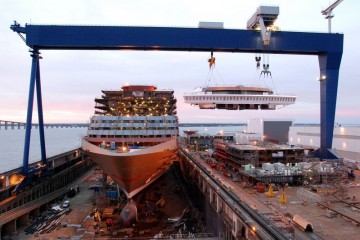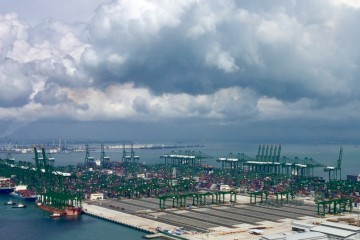Most people would agree that a butcher sells meat, but should not be in charge in formulating meat quality rules and controlling them. This would present a conflict of interest – and it might get people ill. Yet, this is exactly what happens in shipping.
Global rules for shipping are made by the International Maritime Organisation (IMO). More precisely: by the states that make up the IMO and govern its bodies. These states – as in any UN organisation – promote the interests of their citizens, and as a community of nations also the wider global public interest, e.g. for global public goods such as clean air and oceans. The IMO member states are also responsible for implementing and enforcing these rules. At least in theory.
Practice is different, for three reasons:
1. The shipping lobby has a large role in rule-making. International shipping associations are represented in the IMO bodies, have the right to speak at their meetings and can submit proposals. So this is what they do, quite actively. At these meetings, there is also a large amount of national ship-owners associations present to “assist” the official state representatives of their country. It is considered difficult – even courageous – to decide something that shipping organisations do not agree on, so this does not happen all too often.
2. Several large flag states have outsourced their responsibilities to private firms, not only to keep a shipping register, but also to enforce regulations and to decide about regulations within the IMO. Various of these are foreign firms, not even located in the state but somewhere else – the US, Singapore – where they keep the ship registry data. So the link of these firms and the state is very thin. Yet, these foreigners officially represent these countries in IMO meetings, with titles such as Ambassador Extraordinary and Plenipotentiary, even if country laws sometimes explicitly leave such representation to passport holders of the country. Having industry involvement might be understandable for many of the technical discussions – and indeed most IMO member states seem to depend on industry advisors for technical matters, having outsourced civil service expertise to cut costs. Yet, some of the issues that are discussed at IMO are clearly political and deal with the public interest. How could a foreign employee of a private company speak for the public interest of a country he hardly knows?
3. Little chance that the citizens of these states will ever find out: the “representatives” make sure that critical voices from the countries they represent are not accredited, and they are protected by reporting rules for journalists that do not make it possible to reveal who said what in IMO meetings.
Globalisation is not very popular these days. One of the things that provokes unease is the perception of regulatory capture, so the ability of corporations to make regulation instrumental to their private interests – a “rigged” system as they say. Whether regulatory capture takes place in the shipping sector is an open question. Yet, the institutional architecture for regulation of global shipping provides plenty of possibilities for it to happen – and that is not particularly reassuring.
1 Comments
Comments are closed.




Olaf, you argue an interesting concept but I am afraid your rationale is based on flawed logic. You imply that all butchers are the same – low grade with no incentive but to offer the poorest grade of product. This is not true, some butchers will be as you describe but others will provide the finest product (regardless of minimum rules) and charge a premium for it. Flag administrations vary according to quality (remember there are still complaints from some about the “goldplating” of rules). It may be a surprise to know that some “commercial” flags, as you have outlined in your article, actually insist on only excellent ships on their registry. This is borne out by the Port State Control results.
I do agree that there are some Flags that do abuse the process within IMO (and they are well known by all participants who attend the IMO), but it is harsh to think that all Flags operate in the same manner or to the same ethical standard.
By the way – I like the posts – always food for thought.
Kind regards
Richard Eastham